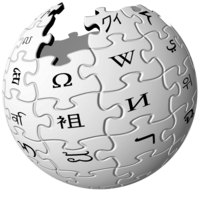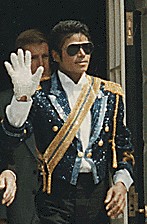 In our interview last week, Ken Doctor commented, ““Newspapers missed the search market and are still paying the price.” A confidential Associated Press document dramatizes how true that statement is.
In our interview last week, Ken Doctor commented, ““Newspapers missed the search market and are still paying the price.” A confidential Associated Press document dramatizes how true that statement is.
The evidence is buried in an otherwise dry discussion of measures the AP plans to take to track and monetize its proprietary content. Beginning on page five, the document recounts Web activity in the hours following the first reports of Michael Jackson’s death. It contrasts this to Web user behavior following the 1997 death of Princess Diana and the September 11, 2001 terrorist attacks.
The contrast is startling. When the earlier blockbuster stories broke, Web users mostly went to branded websites and continually refreshed the pages for updates. When Jackson died, however, the behavior took on a new form. “Two of the biggest beneficiaries of that traffic bonanza were Twitter and Wikipedia, a couple of digital natives that would have been viewed as very unlikely news competitors a few years ago,” the AP document observes.
Unholy Troika
 The new pattern described by AP looks like this: People learn of new information on Twitter, they search on Google and then head to Wikipedia. The result: “Google News was the single largest beneficiary of traffic for ‘Michael Jackson’ searches, attracting 7.1% of the clicks in the four-week period measured. Wikipedia was a close second, receiving 6.8%…the only traditional media outlet in the top 10 was tenth at 1.5%.” In fact, “The Los Angeles Times, at the heart of the story, managed to capture [just] .79% of the ‘Michael Jackson’ search traffic. It was the lone American newspaper site in the top 20.”
The new pattern described by AP looks like this: People learn of new information on Twitter, they search on Google and then head to Wikipedia. The result: “Google News was the single largest beneficiary of traffic for ‘Michael Jackson’ searches, attracting 7.1% of the clicks in the four-week period measured. Wikipedia was a close second, receiving 6.8%…the only traditional media outlet in the top 10 was tenth at 1.5%.” In fact, “The Los Angeles Times, at the heart of the story, managed to capture [just] .79% of the ‘Michael Jackson’ search traffic. It was the lone American newspaper site in the top 20.”
Consider the implications of this behavioral change. In the new troika of news dissemination, newspapers are almost completely boxed out of the equation. Even CNN, which was the big daddy of online news just a few years ago, has been resoundingly thumped by Wikipedia. The only player in the triumvirate that makes a profit is Google News, which produces no original content at all. It drew nearly 5 times the traffic of the top performing for-profit content site.
Taking Back the News
The AP document goes on to outline a plan to reclaim ownership of intellectual property through a code wrapper that makes content trackable, a common tagging and indexing scheme and enhanced publisher reports. Ultimately, the report fingers Wikipedia as the biggest rival to news organizations.
Zachary Seward at Nieman Journalism Lab has been tracking and analyzing the content. The big news for publishers is that the AP indicates that it will begin withholding some information from even its paying subscribers in order to drive traffic to a central AP website. Seward quotes an AP legal representative trying to untangle the vagaries in the document. Seward concludes that “The AP would essentially be relying on its vast network of members to provide search engine optimization for its most unique content.” Nearly 50 comments have been logged in the last 48 hours, and we suspect this is only the beginning of the debate.”
Comments
This entry was posted on Friday, August 14th, 2009 at 11:00 am and is filed under Google, Hyper-local. You can follow any responses to this entry through the RSS 2.0 feed. Both comments and pings are currently closed.



[…] News Wikification […]
[…] é o novo padrão de consumo da informação, segundo a agência de notícias AP. O blog Newspapper Death Watch analisa o […]